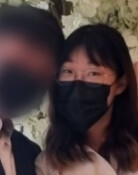[Op-Ed] Korean Restaurants in New York
[Op-Ed] Korean Restaurants in New York
Posted March. 27, 2009 08:47,
Whatever you order, all Korean dishes are put on the table all at once. Few explanations. A decade ago, the New York Times introduced Korean cuisine, saying, New York has Korean food as well as Thai, Indian and Chinese food. Actress Gwyneth Paltrow was a regular at Hangawi, a fusion vegetarian restaurant with a menu in English. Now, those unaware of Korean cuisine are considered non-hip New Yorkers. They wait in line to eat Korean food such as "galbi" (ribs), "bibimbap" (spicy mixed rice), "Sundubu-jjigae" (soft tofu stew), and food from Korean Buddhist temples.
Many celebrities such as director Quentin Tarantino visit Woo Lae Oak, a Korean restaurant chain which began offering high-end Korean cuisine a decade ago. No Korean restaurant in New York is on the Zagat guide, but six Korean restaurants are introduced on the Zagat homepage. Ban, meaning rice, is famous for smokeless barbeque and fusion dishes. Momofuku Ssäm Bar specializing in fusion "ssam (rice wrapped in leaves of lettuce) and "japchae (sauted vegetables with sweet potato noodles) was selected 2007`s best new restaurant by the Times. Momofuku chef David Chang, however, does not want his cuisine being categorized as Korean food.
A Korean visitor might forget he or she is in New York after having the same Korean dish in Koreatown on 32nd Street in Manhattan. He or she might not feel tired after eating spicy Korean food upon arrival in New York after a 13-hour flight from Incheon.
Three Korean restaurants New York Kom Tang, Kang Suh, Kamibok and Geumgangsan are located near Woori America Bank around the Empire State Building. Lawmakers Lee Gwang-jae and Suh Gab-won of the main opposition Democratic Party received bribes from Taekwang Industry CEO Park Yeon-cha at Kang Suh while the two were on a business trip to New York. Prosecutors say the restaurant`s owner kept tens of thousands of dollars for Park and handed the money over to the two lawmakers.
Park seems to have thought that he could avoid investigators if he gave money to lawmakers through foreign accounts or Korean restaurants abroad. The two lawmakers served as secretary and adviser to former President Roh Moo-hyun when he was a legislator. If the bribery allegation against Lee and Suh turns out to be true, those who used to call for reform might be criticized for having reformed the way they receive bribes. The fear is that this might taint the image of Korean restaurants overseas at a time when all parties are trying to globalize Korean food.
Editorial Writer Hong Kwon-hee (konihong@donga.com)
Headline News
- Med professors announce intention to leave hospitals starting Thursday
- Bridge honoring Sgt. Moon Jae-sik unveiled in Pennsylvania
- Chief of Staff Chung tells presidential secretaries to stay away from politics
- US FTC bans noncompete agreements
- N. Korea launches cyberattacks on S. Korea's defense companies







